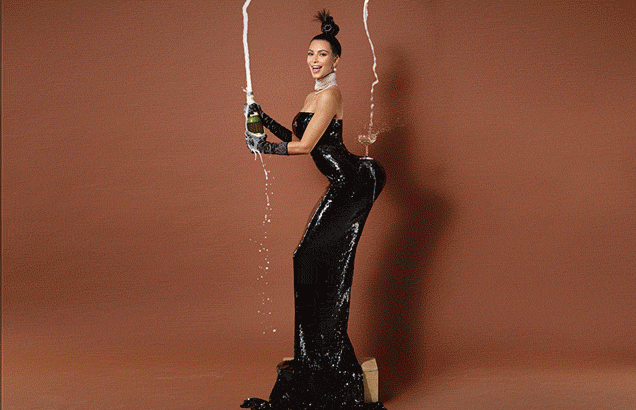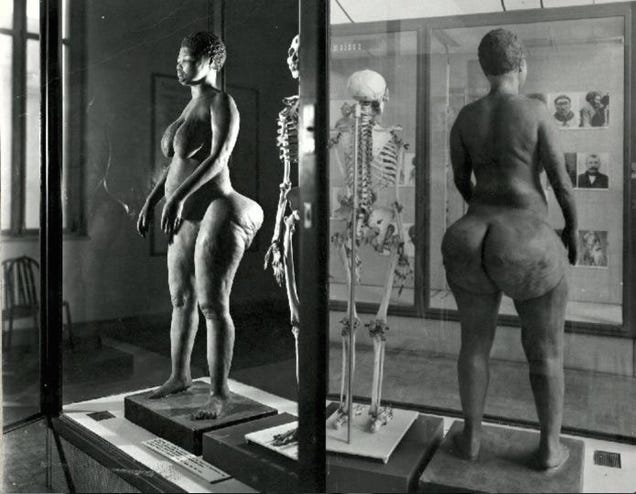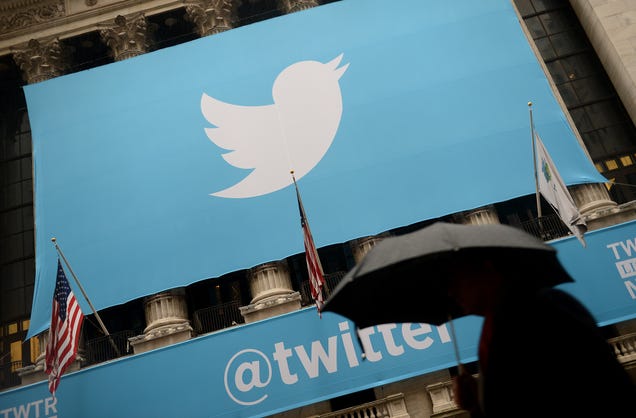![Saartjie Baartman: The Original Booty Queen]()
Hey, did you hear about Kim Kardashian's butt on the cover of Paper magazine?
Of course you did. You know that butts are insanely big right now, both in a literal and figurative sense. Our culture's most esteemed, prominent glutes (or, at least, the ones certain media players have decided are worthy of attention) get profiled in our fashion bible and paper of record. They get photo-spreads in Vanity Fair. They've led the discussion around VMA opening acts two years in a row. But more than that, they feature center-stage in conversations about whitewashing, cultural appropriation, and what is and isn't deemed acceptable when it comes to women capitalizing on their bodies.
The discussion is not new. It's at least 200 years old. And it starts with an illegal immigrant from southwestern Africa who became the most famous black woman in 19th-century Europe, on the back of her notable booty, by the time she was 22. Her name was Saartjie Baartman.
![Saartjie Baartman: The Original Booty Queen]()
A contemporary cartoon of Saartjie Baartman, European sensation.
Like Kim, Saartjie (pronounced Sar-key) was voluptuous but tiny. She stood four feet, seven inches to Kim's purported five-three. Unlike Kim, she didn't just have her sizable assets in the way of talent. (Whether 'balancing a champagne glass on your ass' is a talent remains up for discussion.) She had learned and practiced multiple instruments in her native land (in what is now South Africa). On the stages of London and Paris, she regaled packed audiences with singing, dancing, and instrumental routines. When it comes to her contemporary booty-sisters, she is less Kim Kardashian, more Nicki Minaj.
"She had enormous skills," says Tamar Garb, professor of art history at University College London and a native of South Africa. "She spoke many languages—Dutch, English, some French, and her maternal tongue. She was very literate and sophisticated. The show she put on was very much a performance, even if the role she was required to play was that of a 'savage' femininity."
![Saartjie Baartman: The Original Booty Queen]()
Performing 'savage' femininity (screengrab: YouTube)
Today, Baartman is barely remembered in England. Few people know her name in America. In France, her legacy is a shameful reminder of the country's very racist (and shockingly recent) past. In South Africa, she is a national hero: schools and streets bear her name.
So who the hell was this woman? And how did she end up the talk of Europe?
![Saartjie Baartman: The Original Booty Queen]()
Close-up from a portrait by Léon de Wailly, Paris, March 1815 (source)
Baartman was born in 1789—the year of the French Revolution—in the Gamtoos River Valley in the former Cape Colony. No one knows if, as a woman belonging to the Khoikhoi tribe, she was ever christened with a traditional Khoisan name. In life, she was Saartjie—"little Sara" in Afrikaans, the language spoken by Dutch settlers.
Her family life was marred by death. Her mother passed before Baartman turned one; her father was murdered when she was 17 or 18. She worked as a servant and wet nurse to the family of Hendrik Cesars, a free black man, before moving in with a soldier: a drummer affiliated with the Cape Town troops. By all accounts they loved each other, and they had a child together. But the child died before turning two.
When Baartman's child passed, her relationship collapsed. She went back to the Cesars household, taking care of their children while grieving for the loss of her own.
In all likelihood, this is how Baartman would have spent the rest of her life. But the Cesars household would quickly fall on hard times. Hendrik Cesar may have been a free man—one who could afford household help, at that—but he was still a black man in colonial Africa. He was also illiterate. Economically, he was at the bottom of the totem pole.
And Cesars, too, worked as a servant. He was employed by a British Army surgeon named Alexander Dunlop—a skilled physician who was not adverse to standing up to his superiors. One of these kerfuffles cost Dunlop his job, and he was shipped back to England in 1809.
With Dunlop gone, Cesars no longer had a stable job, and Baartman's employment hung in the balance. They were all screwed. So they decided to go into business together, each with the hope of striking rich.
In her sensational biography of Baartman, Rachel Holmes speculates that "Dunlop, Hendrik and his brother Pieter must have been paying close attention to Saartjie, for it was at this point that they hatched an audacious plan." The plan? Whisk Baartman, the servant of their servant, to Europe, and make her a star in the human freak show circuit.
Everyone in Europe knew about the Khoikhoi women. At least, they knew what travelers' accounts told them. The Khoikhoi—or Hottentots, as the Dutch had re-christened them—were exquisite, exotic creatures from deepest, darkest Africa. Their buttocks were huge, and their labia unusually long (this trait became known, informally and largely because of Baartman, as the "Hottentot apron.")
However, few Europeans had ever seen Khoikhoi women up close. Dunlop and the Cesars brothers predicted, correctly, that voluptuous Saartjie would prove a hit.
At this time, the British imperial century was just kicking into gear. Subjects of King George III were colonizing remote areas of the globe and bringing back stories of the "savages" they encountered. Scientists in England and France drew up differences between races, argued for the inferiority of all the non-white ones, and called it science. Freak shows, predicated on these hierarchies, became a popular option for a day out.
Baartman's Khoisan heritage and unearthly figure meant that she was both an exotic foreigner and a "freak." Her arrival in London merged those two categories together, ushering in the era of the human zoo.
![Saartjie Baartman: The Original Booty Queen]()
Left: William T. Maud, A Peek at the Natives, 1899; Right: Exhibit B, a recent art show exploring the racist history of human zoos, engendered so much controversy that it got shut down in September.
It's impossible to say how much Baartman's own thoughts and feelings factored into her male superiors' plans. What is clear, however, is that she did not leave Africa against her will.
"She was not a slave, which is a common misconception," says Garb. "She was somebody who was paid for their work. In some sense, she agreed to the terms of her own subjugation."
"Which would you chose?" asks Rachel Holmes, Saartjie's biographer. "Would you rather be a maid in Cape Town, stirring ashes? You're young! You're 21! If someone tells you, 'Get on a ship, and go make your fame and fortune,' you're like, 'Yeah! I'm gonna take my chances there."
But there's no discounting the fact that Baartman was naïve. She was all of 20 when she left for England in the company of her former employer, who smuggled her illegally into a ship bound for Saldanha Bay, and then another bound for England. She left behind a certain future of domestic drudgery and the pain of losing her family—twice. In her mind, Europe was going to change everything: she would make it big, and then return to her homeland triumphant.
"She very much believed that she would accumulate the kind of money that would allow her to go back home," says Garb. She had agreed to work in England for six years, after which she would collect her rightfully-earned wages and travel back to Cape Town on Dunlop's and Cesars' dime.
The crew arrived in London in mid-1810. By that point, Dunlop was no longer Cesars' boss. The two men were business partners now, the managers of "Saartjie Baartman: Hottentot Venus."
![Saartjie Baartman: The Original Booty Queen]()
European tour of an African rockstar: "That most wonderful phenomenon of nature" (left), "just arrived from the interior of Africa" (right).
Dunlop and Cesars worked around the clock to launch their client's career. They secured an event space in fashionable Piccadilly, built a stage, and put together a meticulous set, complete with a grass hut—"Saartjie's home"—that reflected their idea of Africa back to an audience that had never been there. They sent press releases to the most esteemed members of London society: writers, artists, scientists, minor royalty. They placed an ad in the Morning Herald and Morning Post, which read, in part:
[F]rom the banks of the river Gamtoos, on the borders of Kaffraria, in the interior of South Africa, a most correct and perfect specimen of that race of people. From this extraordinary phenomenon of nature, the Public will have an opportunity of judging how far she exceeds any description given by historians of that tribe of the human race. (Holmes, 6-7)
Baartman made her stage debut as the Hottentot Venus on September 24, 1810, and became an overnight sensation. She'd been in London two months.
![Saartjie Baartman: The Original Booty Queen]()
Still from the movie Black Venus, about Saartjie Baartman
The performances lasted an average of four hours, and were carefully choreographed affairs—even if they gave off the air of spontaneity. At the beginning of each show, Baartman slipped out of her "home," the grass hut, and launched into song and dance. She sang folk songs in several languages, including English and Khoi, and captivated the audience with the unfamiliar sounds of a Khoisan proto-guitar called a ramkie.
From where the audience members stood, Baartman looked scandalously naked. Her only adornments appeared to be all the beads, bangles and pendants that she'd never worn at home in Africa, but that were now part of her 'African' costume.
But it's important to note that Baartman never performed in the nude. She wore a snug, skin-colored body stocking that only hinted at her naked form. This didn't keep audience members from reaching up and making a grab at her famous behind—as one horrified spectator noted in his diary, a lady in the audience jabbed Baartman with a parasol, because "she wished to ascertain that all was … 'nattral.'" (Holmes, 4-5) Neither did it keep her contemporary artists from trying to envision what lay underneath the stocking:
![Saartjie Baartman: The Original Booty Queen]()
(source)
The performance-and-publicity schedule was grueling. Baartman was on the Piccadilly stage six days a week. At night, she performed in private parties at the residences of the elite and in London's salons. On Sundays, she rode a carriage through town, waving to the crowds like royalty. Her exhaustion soon became apparent onstage. She was cranky, and often sick.
Soon, abolitionists got wind of the Khoisan woman who danced and played and sang for interminable hours on the London show circuit, and became convinced that she was there against her will. They launched a campaign to give her back her freedom, and brought the matter to a High Court.
But, when it came time for her to testify, Baartman was adamant. She didn't want to go home. Not yet. She hadn't made her fortune. She wanted to stay.
"The really smart commentators of the time understood her position as a figure of popular culture," says Holmes. "It's not that what the abolitionists we're trying to do wasn't right, but the reality was that she exercised the agency that she could within the constraints of the oppression that she was subject to."
Ticket sales skyrocketed in the aftermath of the abolitionists' campaign. She performed her last show in London in 1811 to great fanfare, then took a break from public life. For the next two years, Baartman enjoyed a life of relative obscurity, only to return to showbiz with a much-publicized move to Paris in 1814.
She had landed in London anonymous, and arrived in Paris a star. But the celebrity machine chewed her up before she could take what she wanted out of it. In her Paris years, Baartman succumbed to alcoholism and became a recluse. Dunlop had died, and Cesars had returned home to his family. Her new manarger had turned out to be a predatory Svengali. She was lonelier than ever, and it was becoming increasingly obvious that she wouldn't be able to gain the independence she needed to travel back home.
She died in Paris on a bitterly cold December night. She was 26. Cause of death is unknown, though pneumonia, aggravated by alcoholism, is a strong contender.
But when Baartman's life ended, the public appetite for her physical form did not. She had been many things in life: immigrant dreamer, talented performer, objectified woman-of-color, diva. But in death, Baartman lost what little control she had over her legacy. Most poignantly, she lost total control of her body.
Less than 24 hours after her death, Baartman's corpse lay on a cold slab in the anatomical laboratory of the Natural History Museum. She had been brought there illegally, at the behest of Napoleon's surgeon general. Working covertly in the dead of night, Georges Cuvier and his assistants set about dissecting the body that had titillated and shocked European society. They cut Baartman up, made casts of her body parts (with special attention given to her supposedly-elongated labia), boiled her bones and placed her brain and genitals in preservation fluid, pickling them for posterity.
Baartman's unburied body parts went on display at the National Museum of Natural History in Paris, where they remained until the 1970s. The plaster casts taken by Cuvier had been assembled and painstakingly painted over in realistic detail, like a wax figure at Madame Tussaud's.
And so, for nearly two centuries, the woman who refused to perform without a full-body stocking was exposed, naked and vulnerable, to gaping museum audiences. Baartman had sought to make a good life for herself by capitalizing on her unique body type, and her canny willingness was interpreted by European intellectuals as a total abdication. Everyone believed her body belonged to them.
![Saartjie Baartman: The Original Booty Queen]()
(source)
When Nelson Mandela became the first democratically-elected president of South Africa in 1994, he took up the issue of Saartjie Baartman's repatriation with the French president. But it took eight long years before the French acquiesced to South Africa's demands that their citizen's remains be brought back home. Those were eight years in which French authorities argued that Baartman would be safer in their 'civilized' country, "cherished in the home of liberty, fraternity and equality, than in South Africa." (Holmes, 105).
Baartman finally came home in 2002—187 years after she died. Crowds thronged the airport to witness the arrival of her casket, wrapped in the flag of the new South Africa. She received a state funeral. Two and a half thousand people showed up.
So what do we do with the story of Saartjie Baartman?
For one, we make sure it doesn't get forgotten. It's the only way that we can look at the image below and think of it in its appropriate historical context. (You're probably aware by now that the photo was the original inspiration for Kardashian's now-infamous shoot, and that both the original and Kardashian's picture were conceived by French photographer Jean-Paul Goude, whose 1982 book was titled, naturally, Jungle Fever.)
![Saartjie Baartman: The Original Booty Queen]()
(source)
By remembering Baartman, we watch Nicki Minaj's own "Jungle Fever" VMA performance and hear the echoes of that old routine performed by a four-foot-seven woman with a very big butt in the stages of Europe two hundred years ago. We look back at Josephine Baker's controversial "Banana dance" on a Paris stage and realize that the point, all along, was to tell Baartman that she hadn't been forgotten.
But there's more at stake here. It's all too easy to interpret Baartman's tragedy as a cautionary tale for Nicki, and Kim, and the myriad other women building a career with their assets. But to do so would be to continue to victimize a figure who has already suffered too much tragedy in life as well as death.
There's no clear way to categorize Baartman, and no need for us to do it. Baartman chose to perform. Her choice took her across the world, and offered her experiences beyond her certain destiny as a household maid; her choice also brought her into a world of immense tragedy and humiliation. She surely had complicated relationships she must have had with the men who oversaw her career; she surely had complex feelings towards the societal anxiety and colonial fetishism that allowed her to be famous in the first place. But what is essential to remember is that she never acquiesced to being treated as property. Within the framework she was given, she was always an agent in her own path. She viewed herself as a performer, not a tool for scientific advancement, nor an educational resource for museumgoers, nor a patrimony of the state.
On the eve of Baartman's arrival in South Africa, The Sowetan published a cartoon by famed illustrator Zapiro. It showed Baartman's remains arriving in a wooden crate. Take a look at it below, and tell me it doesn't give you chills.
![Saartjie Baartman: The Original Booty Queen]()
(source: Rachel Holmes' biography of Baartman. Picture taken by Cleuci de Oliveira)
It's easy to make fun of Kim Kardashian. It's easy to feel enraged by the likes of Jen Selter, making bank for her big booty by virtue of being white. It's harder to understand that, for the women who are capitalizing on their bodies, they are already handling themselves with care. They are already asserting a complicated dignity. They are already demanding our respect.
Cleuci de Oliveira is a journalist based in New York City. She writes about art, culture, and Latin America. Follow her on Twitter.

































![19 Funniest Nude Scenes In Science Fiction And Fantasy [Work-Safe!]](http://i.kinja-img.com/gawker-media/image/upload/s--HSerA5hN--/c_fit,fl_progressive,q_80,w_636/ce1dq5qs5b8ximqx0cae.jpg)
![19 Funniest Nude Scenes In Science Fiction And Fantasy [Work-Safe!]](http://i.kinja-img.com/gawker-media/image/upload/s--iHdvSEGF--/c_fit,fl_progressive,q_80,w_636/qbzqmly29hrpcghouc6h.jpg)
![19 Funniest Nude Scenes In Science Fiction And Fantasy [Work-Safe!]](http://i.kinja-img.com/gawker-media/image/upload/s--oqUlBiHE--/c_fit,fl_progressive,q_80,w_636/oibbsxeqqyndwvfycicm.jpg)
![19 Funniest Nude Scenes In Science Fiction And Fantasy [Work-Safe!]](http://i.kinja-img.com/gawker-media/image/upload/s--qpbeaZVp--/c_fit,fl_progressive,q_80,w_636/rahdqmuogzv1bcz2gsje.jpg)
![19 Funniest Nude Scenes In Science Fiction And Fantasy [Work-Safe!]](http://i.kinja-img.com/gawker-media/image/upload/s--_nIqGrB5--/c_fit,fl_progressive,q_80,w_636/or5lhmry9pynalrwpiyf.jpg)
![19 Funniest Nude Scenes In Science Fiction And Fantasy [Work-Safe!]](http://i.kinja-img.com/gawker-media/image/upload/s--YL-3ME9m--/c_fit,fl_progressive,q_80,w_636/ucuyoqfccjb3pqzykhwt.jpg)
![19 Funniest Nude Scenes In Science Fiction And Fantasy [Work-Safe!]](http://i.kinja-img.com/gawker-media/image/upload/s--1cLT91Fc--/c_fit,fl_progressive,q_80,w_636/vy157v3czmqjelv8nxys.jpg)
![19 Funniest Nude Scenes In Science Fiction And Fantasy [Work-Safe!]](http://i.kinja-img.com/gawker-media/image/upload/s--f3drLFeK--/c_fit,fl_progressive,q_80,w_636/uwo10aeauzakvvryl65t.jpg)
![19 Funniest Nude Scenes In Science Fiction And Fantasy [Work-Safe!]](http://i.kinja-img.com/gawker-media/image/upload/s--vv31_NW9--/c_fit,fl_progressive,q_80,w_636/zh7tb3zpcmyzv5l3ltgy.jpg)
![19 Funniest Nude Scenes In Science Fiction And Fantasy [Work-Safe!]](http://i.kinja-img.com/gawker-media/image/upload/s--7f15jJ4o--/c_fit,fl_progressive,q_80,w_636/vhd1enghg9rpclzsrrri.jpg)
![19 Funniest Nude Scenes In Science Fiction And Fantasy [Work-Safe!]](http://i.kinja-img.com/gawker-media/image/upload/s--ffD_a6Rx--/c_fit,fl_progressive,q_80,w_636/bbwsg3tyr9ujezb9dqsv.jpg)
![19 Funniest Nude Scenes In Science Fiction And Fantasy [Work-Safe!]](http://i.kinja-img.com/gawker-media/image/upload/s--VmVE1hGo--/pooifccjhhxbezjjux6x.jpg)
![19 Funniest Nude Scenes In Science Fiction And Fantasy [Work-Safe!]](http://i.kinja-img.com/gawker-media/image/upload/s--SLs93x2A--/c_fit,fl_progressive,q_80,w_636/k4uym9gq3mzwuct2qthv.jpg)












